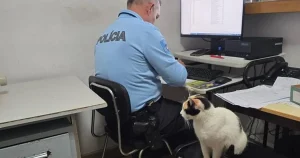Refugee children and asylum seekers in Portugal face several challenges to their integration, such as language barrier, discrimination, lack of educational and professional opportunities, risk of poverty, and social exclusion, UNICEF Portugal has warned.
“Welcoming and integrating refugee children and asylum seekers in Portugal is a commitment to solidarity and humanity that we recognise and value,” said Beatriz Imperatori, Executive Director of UNICEF Portugal. Today is World Refugee Day.
“In parallel, it is also an issue that transcends national borders and requires a joint and coordinated response at the international level. Only in this way can we ensure the effective protection of children on the move and their access to the fundamental rights that are due to them.”
UNICEF reports that in 2022, Portugal registered 1,992 applications for international protection, including 354 children, 83 of whom were unaccompanied, according to data from the Foreigners and Borders Service (SEF) cited by UNICEF.
The majority of asylum seekers in Portugal come from countries such as Afghanistan, India, The Gambia, and Pakistan.
Added to these figures are the 14,111 applications for temporary protection granted by Portugal to children displaced from Ukraine after Russia’s invasion.
“It is essential that these children are welcomed with dignity and respect for their rights, that they have access to essential services that allow them to develop their potential and contribute to Portuguese society,” Beatriz Imperatori noted.
Worldwide, the number of child refugees and asylum seekers has also reached a new record of 17.5 million, not counting recent 2023 data, which includes the conflict in Sudan, which has affected more than 940,000 children so far.
The number of displaced children worldwide reached 43.3 million in 2022, a new record estimated by UNICEF, which estimates that the war in Ukraine has led to the flight of more than two million minors.
According to a report by the United Nations Children’s Fund (UNICEF), the number of children displaced from their homes has doubled in the last decade, outstripping the capacity for inclusion and protection of refugee and displaced children.
Of the 43.3 million children who were forcibly displaced at the end of last year, nearly 60 percent (25.8 million) were internally displaced due to conflict and violence.
Samantha Gannon
info at madeira-weekly.com







